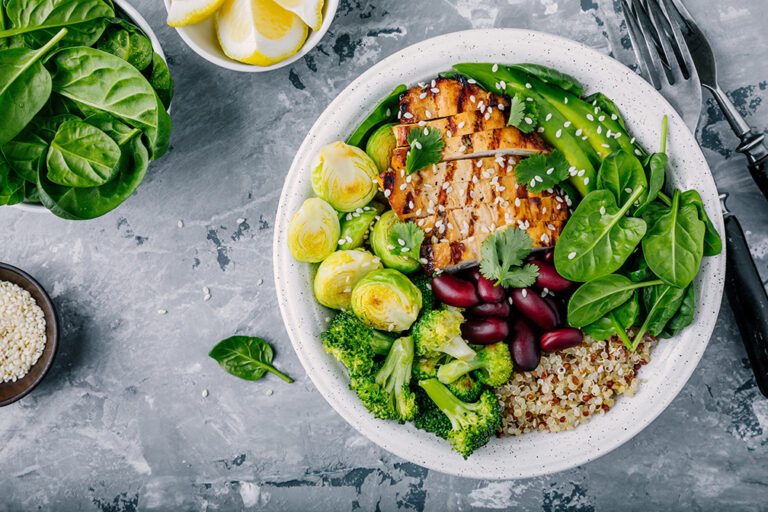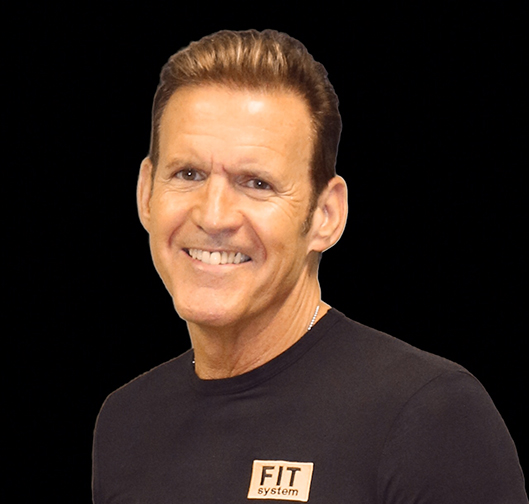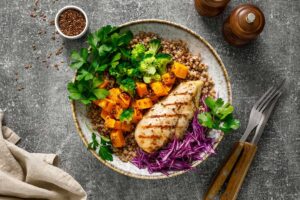Does eating late at night really make you gain more weight?
I’m asked this question regularly — and yes, it’s true that eating late can lead to weight gain.
A key point to remember if you do eat later than normal is that the meal needs to be light, but protein-based. In addition, when combined with caffeine and alcohol, that late meal or snack can cause problems as you attempt to obtain restful sleep at night.
The biggest mistake people make when eating late meal is that they generally choose food that’s heavy on carbs. Those carbs convert to sugar overnight. That wreaks havoc on the body’s glucose (sugar) levels which, in turn, results in poor rest. Some people even wake up the next morning with a sugar “hangover.”
Then the post-binge guilt sets in, and you think you need to go without eating. Before you know it, you’ve gone over 12 hours without eating — and have usually started loading up with caffeine for energy — and your metabolism has shut down.
Here’s a comparison most drivers can relate to: It’s like trying to run your truck without fuel; you have to get out and push it down the road.
First of all, you won’t have the strength or energy to push your “truck” because your body’s fuel tank is on empty. Your system will start eating away at the body’s muscle tissue, not the fat. You must properly fuel your system for it to run effectively and support recommended health levels. Running on empty is not good.
Your doctor or dietician can tell you what to do to keep your “engine” in tiptop shape, but only you can make the choices each day that lead to good health. Here are a few tips:
- Eat “colors.”
When it comes to fruits and vegetables, the more vivid the color, the more vitamins and minerals. Eating a good variety of fruits and veggies can help control your weight and lower your blood pressure.
- Eat more fish.
Adding fish to your diet at least twice a week will boost your omega-3 fatty acids and help lower your risk of coronary artery disease.
- Cut the fat.
Fried foods, partially hydrogenated oils, and saturated fats should be kept to a minimum.
- Do your homework.
Read the product labels to make sure you’re not overloading on sugar and carbs in order to get the necessary protein.
It’s time to learn to listen to your body. Stay tuned for more tips, and thanks for reading.
Known as The Trucker Trainer, Bob Perry has played a critical role in the paradigm shift of regulatory agencies, private and public sector entities, and consumers to understand the driver health challenge. Perry can be reached at truckertrainer@icloud.com.
Bob Perry is a regular contributor to The Trucker. He has spent nearly the past four decades on a mission to educate professional drivers and share life-changing products and services to help them live healthier lives while on the road. Recognized throughout the transportation industry, from bus drivers to over-the-road professional drivers, Perry has played an important role in creating a paradigm shift helping regulatory agencies, private and public sector entities, and consumers understand the current health challenges of the professional driver. He has participated as a wellness advocate in several roundtable discussions, large audience groups and small forums as well as going “curbside” through a national truck stop tour.
Bob’s articles have been featured in The Trucker and a number of other national transportation industry publications and is the host of a weekly wellness call produced by Rolling Strong. Bob has been a regular guest on RedEye Radio and Land-Line Radio, and is often an invited guest on Sirius radio shows. He has been featured in the New York Times, Men’s Health Magazine, Drug Store News, American Road Magazine, WSJ, NPR, ABC National Radio, as well as hundreds of daily newspapers. He has appeared on television news shows across the nation, including a featured TV segment on ABC NightLine News.





